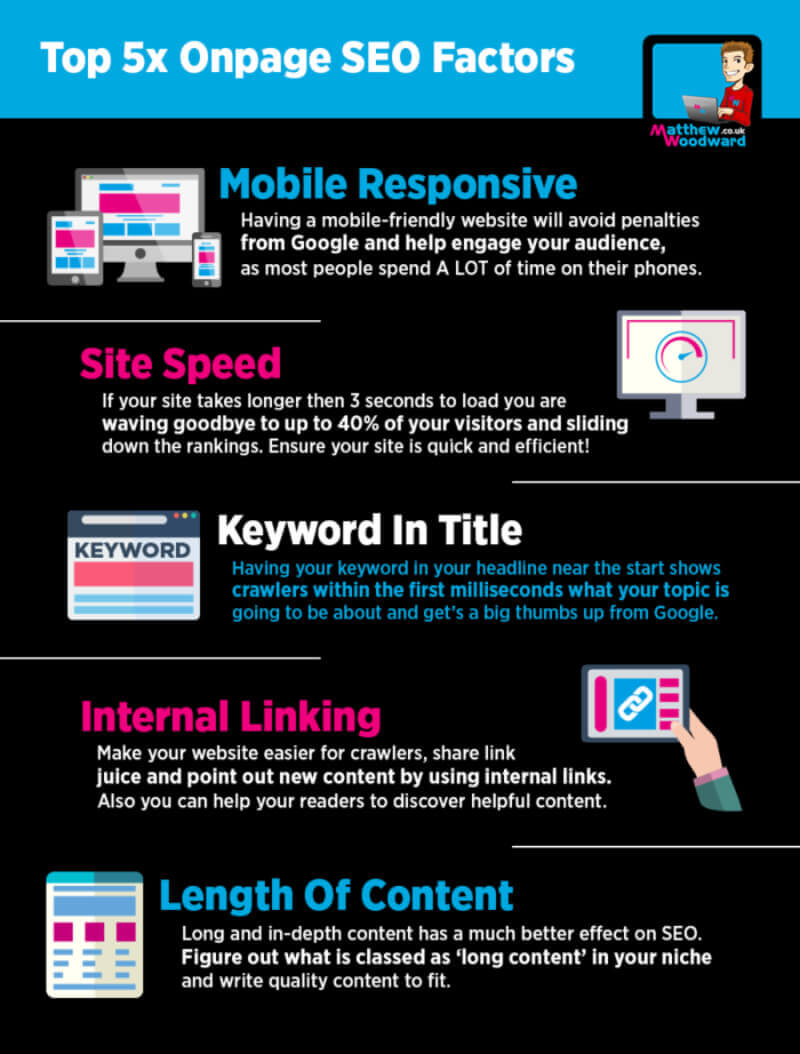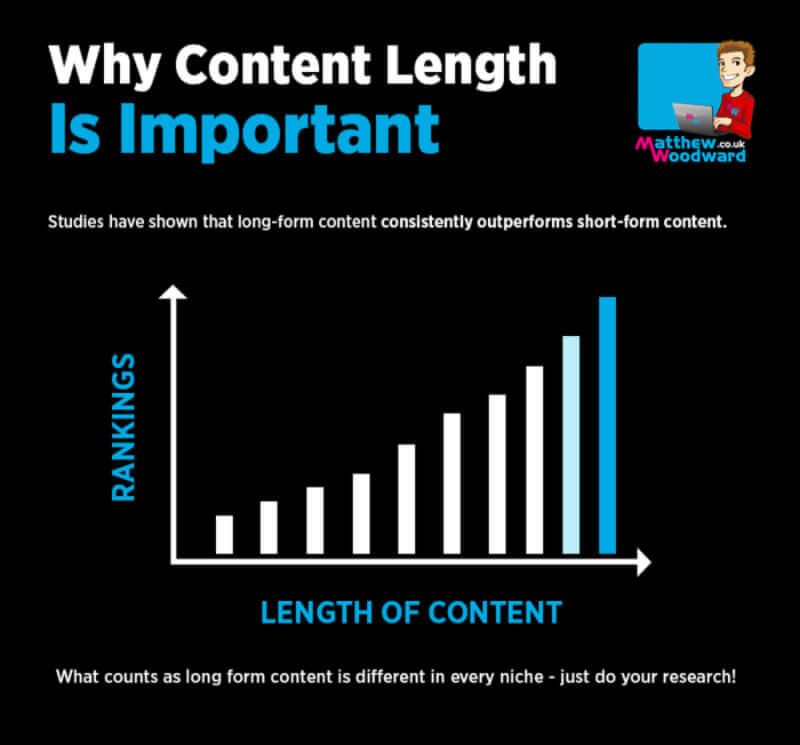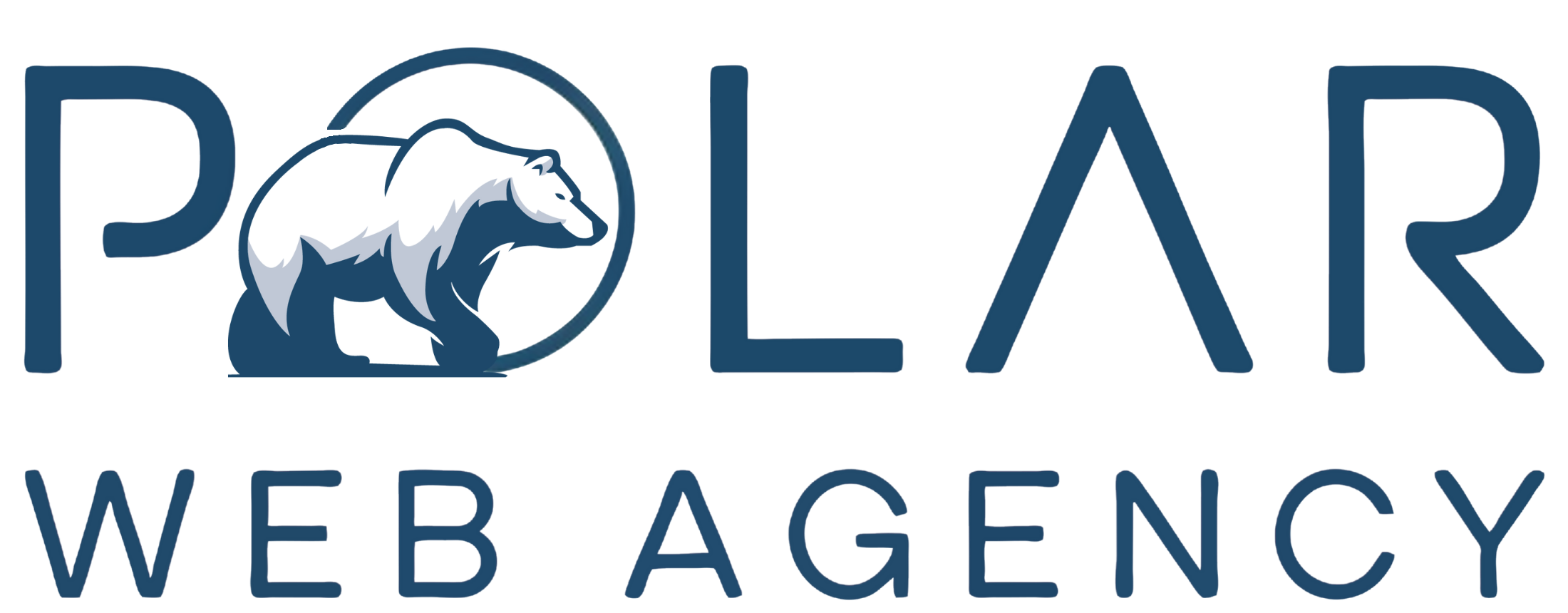Get in touch for SEO that will bring the right customers to you…
What Is On Page SEO?
It’s all about optimizing your website, content and coding, and we do this to rank higher in the search results. In turn, this brings you more search traffic, which can later be turned into an income.
When you really boil it down, on page SEO can be broken down into two parts. And when put together, they play a vital role in increasing your search volume.
So what are they?
Optimizing The Code
In essence, this is making sure any HTML codes you use throughout the page is neatly displayed. This benefits the search engine as it makes it easier to crawl your site.
What you’re looking to do is make sure there is no junk code (code that adds no value) and your keywords are optimized correctly.
User Experience
Essentially, this means making everything look pretty and easy to use for your users. You can do this by formatting the page to display all the information clearly.
This could be using short and snappy sentences or adding styling to your bullet points.
These two factors alone can have a severe impact on where your website ranks in search engines and how long the user stays on your page.
Get in touch for SEO that will bring the right customers to you…
The 5 Most Effective On-Page SEO Factors
I’m sure you’re dying to know how to get started, and what factors will help you rank your pages.
So, without further ado here are five of the most effective on page SEO factors, that won’t cost you a penny and can be achieved easily:

1. Mobile Responsiveness
People spend more time than ever browsing the internet with their mobile devices, which is why Google finds it so necessary to have a website that responds well to mobile phones.
In fact, they find it so important that in 2015 Google started to penalize websites that weren’t optimized for mobile phones. This means any site that doesn’t format itself for a user-friendly mobile website will struggle to rank no matter how good the content is.
This was set in stone after the 2018 mobile indexing update. If you’re not sure how mobile-friendly your website is, you can check it out here.
2. Website Speed
In this day and age, people want the information there are searching for quickly. If you can’t provide the speed, they will go to another site.
It’s been an important ranking factor for the best part of 10 years, and it’s definitely something to take seriously. Every millisecond counts, so the better the site speed, the higher up the rankings you go.
Your site speed is in your control and needs to be taken seriously; a slow site will cost you traffic that could have been turned into profit. If you’re interested to see how fast your website is, and areas in which you can improve, GTmetrix is a great place to start.
3. Internal Linking
This is another factor that is surprisingly underutilized considering the power it holds. And it’s essential for a few factors.
Internal links encourage people to stay on your website for a little bit longer, as well as providing extra value to the readers. But there’s another reason:
It helps crawlers navigate every corner of your site quickly and efficiently, and they love it.
As you’re writing content for your site, you may notice that your other pages would fit nicely and provide extra value for your readers.
You’ll then share the link juice between the two pages, thus pushing you up the SERPs.
4. Title Beginning With The Keyword
SEO is all about gaining favour with search engines, and putting the keyword at the start of the title helps massively. In fact, it’s actually one of the most important on page SEO factors.
And like most of the above, it’s super achievable and costs no money. Having the keyword at the start of the title allows the search engine to know exactly what the page is about in milliseconds.
If you’re not great at creating catchy and engaging titles, you can download the Yoast plugin. It will help you create great titles that are SEO ready. One thing you have to make sure of is that the title of the page is H1. If it’s not, you could find yourself having problems ranking the page.
5. Content-Length
Many people will think the length of the content isn’t that important, but it is very relevant. Upon research, I’ve seen time and time again that longer-form posts will outperform any slim looking content.

Get in touch for SEO that will bring the right customers to you…
And when you look further into it, you’ll notice most page one results will be around 2,000 words. It seems that Google prefers a more in-depth approach to content because it provides more value for the reader.
Now, what counts as long-form content can vary between niches, so it’s worth doing your research. By checking what other people are ranking for, you’ll know exactly what you need in your content.
Finishing Off On Page SEO: The Guide For Beginners
Remember, on page SEO is in your total control, and the best bit is it’s completely free to achieve.
When done correctly, it can be extremely potent at boosting your page up through the SERPs.
We use on page SEO for two reasons: improve the readers’ experience and help search engines crawl the website with ease.
Remember, your primary focus should be:
- Internal links
- Length of content
- Site speed
- Mobile responsive
- Keywords at the start of your title
By implementing these five key on page SEO factors, you’ll see good results. It only takes a small amount of brainpower and a bit of your time.

